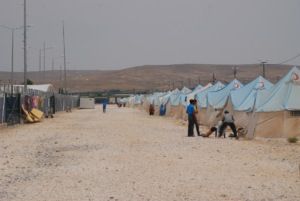News
International Round-Up: Danish children born to IS fighters face radicalisation if not returned home
This article is more than 5 years old.
19 children will remain in Syrian prison camps as their own government has refused them the right to repatriation

The number of children at the camps has now fallen to just three (photo: pakkalajuha)
The children of Danish-born IS fighters risk radicalisation if the Danish government do not act to save them, according to advice from the Kurdish authorities.
It is estimated that between 940 and 1,140 Europeans are being held in Syrian prison camps, of which a majority may be children of IS fighters.
The Danish government, however, has stood by its previous decision that it will not accept the children of IS fighters back into the country, and it recently refused to receive 19 Danish children from the northern Syrian camps of al-Roj and al-Hol.
Government rejects responsibility for the children
Dr Abdulkarim Omar, of the Foreign Affairs Bureau for the Autonomous Administration of Northern and Eastern Syria, has criticised Western governments for not acting faster.
“If the situation in the camps remains as it is, we will see a new generation of terrorists – even more dangerous than IS are now. It will be a generation that has grown up with terrorist ideology and a mentality bent on revenge,” said Omar.
Parties such as Enhedslisten, SF, Radikale and Alternativet have called for the children to be brought home, but the government has maintained that responsibility lies with the parents.
“The future of these families does not lie in Denmark. It lies in the Middle-East. That is the decision their parents have made for them,” said Rasmus Stoklund, the foreign affairs spokesperson for Socialdemokratiet.
Novo Nordisk fund supports children in Syria
From January next year, children across Denmark can help out in the annual ‘Danmarks Indsamling’ – a huge charity collection effort that aims to bring the whole country together. Kids will be encouraged to take part in ‘Gode Gerninger’ – good deeds organised by DR Ramasjang, libraries, and partners around Denmark. For every good deed, Novo Nordisk will be donating 20 kroner towards children in Syria. Last year, 100,000 Danish children took up the call, enabling Novo Nordisk to give 2.5 million kroner towards ‘Danmarks Indsamling’.
Denmark at the forefront of NATO missions in Iraq
The Danish military have now taken leadership responsibility over NATO’s training missions in Iraq, and it will lead the efforts into 2022. NATO’s goal in Iraq is to advise the Ministry of Defence and to aid its national security in stopping the reoccurrence of terrorist groups. General-Lieutenant Per Pugholm Olsen will now head the NATO mission in Iraq, where some 150 Danish soldiers are currently stationed.
New border agreement between Denmark and Poland
The foreign minister, Jeppe Kofod, has issued a new executive order that will finalise the Danish exclusive economic zone around Bornholm. The agreement determines Denmark’s rights to utilise natural living and non-living resources up to 200 nautical miles from the coast – so beyond the territorial waters that extend for 12 nautical miles from the shores of Bornholm.
Government refuses to stop Danish export of illegal pesticides
The Danish government has chosen not to act against the export of illegal pesticides to countries outside the EU. The pesticides in question are banned within Denmark itself, as they contain dangerous chemicals such as malathion and dimethoate, which attack the nervous system and can cause serious long-term health injuries. MPs Christian Juhl and Rasmus Nordqvist have called for a halt to Danish exports of the pesticides, but the government has opted to leave responsibility for future bans with the EU.
Woman sent to prison for leaving her child in Africa
A 42-year-old Danish woman has been sentenced to a year in prison after deserting a 15-year old girl in Uganda who she was the acting guardian of. The girl, born and raised in Denamark, had no idea that she would be left in Uganda – without a passport or mobile phone – with a family who could neither support nor speak to her. The authorities, after bringing the girl back to Denmark after just one month, pressed charges against her guardian – who was also found to have been violent towards her own three children.










































